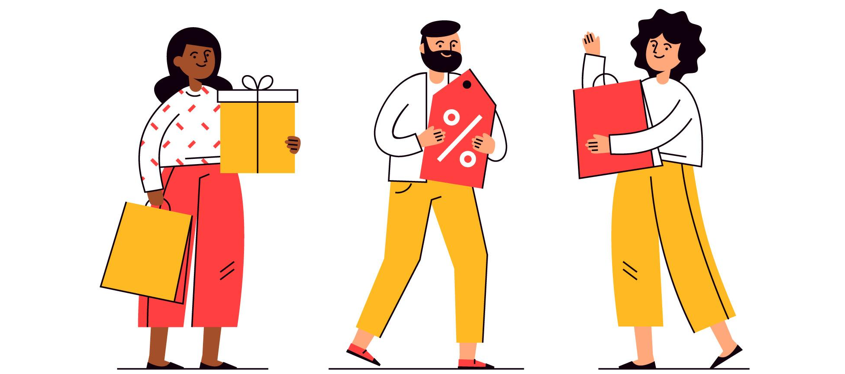Do You Shop Compulsively?

Compulsive Buyers: How Psychological Therapy Can Help Overcome This Behavior
Nowadays, consumerism has taken on a very prominent role in others lives, especially during times of sales, discounts, and promotions. However, when the need to buy becomes a compulsion, it can affect a person’s quality life. Compulsive buying, also known as Oniomania, is a disorder characterized by an uncontrollable urge to purchase products or services, despite the negative consequences.
What is Compulsive Buying?
Compulsive buying is much more than simply enjoying shopping. It is a persistent and uncontrollable impulse that leads a person to make unnecessary purchases, often as a way to cope with negative emotion or stress. This disorder usually results in feelings of guilt or shame after buying , yet the need to acquire products keeps recurring.
How to Identify a Compulsive Buyer
It is important to recognize the signs of compulsive buying in order to seek help. Some of the most common symptoms include:
- Excessive and unnecessary purchases: Buying things that are not needed and that pile up without being used.
- Guild and regret: After making a purchase, the person feels guilty or regretful, but soon falls into the cycle.
- Impulsive shopping: Feeling the need to buy without planning or control.
- Impact on dairy life: Compulsive buying behavior can affect personal finances, relationships, and work life.
Why Does Compulsive Buying Happen?
 Compulsive buying is often related to underlying emotional problems such as anxiety, depression, or stress. Many people use shopping as a way to cope with emotional distress or to temporality boost their mood. However, this relief is short-lived, which can lead to recurring cycle of shopping.
Compulsive buying is often related to underlying emotional problems such as anxiety, depression, or stress. Many people use shopping as a way to cope with emotional distress or to temporality boost their mood. However, this relief is short-lived, which can lead to recurring cycle of shopping.
Additionally, factors such as social pressure, constant advertising, and aggressive promotions can intensify this behavior.
The Importance of Psychological Therapy in Overcoming Compulsive Buying
If you are trapped this behavior or know someone who is, psychological therapy can be a key resource to change this destructive pattern. Here’s why:
- Identifying Underlying Factors
Psychological therapy can help uncover the emotional triggers driving compulsive buying. A specialized psychologist can address these underlying issues and reduce the need to use shopping as a coming mechanism.
- Cognitive Behavioral Therapy (CBT)
One of the most effective ways to treat compulsive buying is through Cognitive Behavioral Therapy (CBT). This therapy helps individuals identify negative or irrational thoughts related to consumption and replace them with healthier beliefs. CBT also teaches skills to improve self-control and avoid temptations.
- Stress and Emotions Management
Therapy provides tools for managing stress and regulating emotions, allowing individuals to face difficulties without turning to impulsive shopping. Learning to handle emotions in a healthy way is crucial to overcoming compulsive buying.
- Strengthening Self-Esteem
People with compulsive buying disorder often struggle with low self esteem. Therapy can help improve self-esteem and self-acceptance, reducing the need to seek validation or comfort through shopping.
- Creating new routines and habits
Therapy also includes developing new habits and routines that encourage a healthier lifestyle, Setting realistic goals and implementing gradual changes are important steps in this process.
If you feel that shopping is out of control and this behavior is affecting you life, you are not alone. At our psychology clinic in Marbella, we help you overcome compulsive buying and regain emotional balance.
Contact us today and take the first step toward a life free from compulsive consumption!
For more information:
(+34) 951 765 549 / 672 115 083
Follow us on our social media